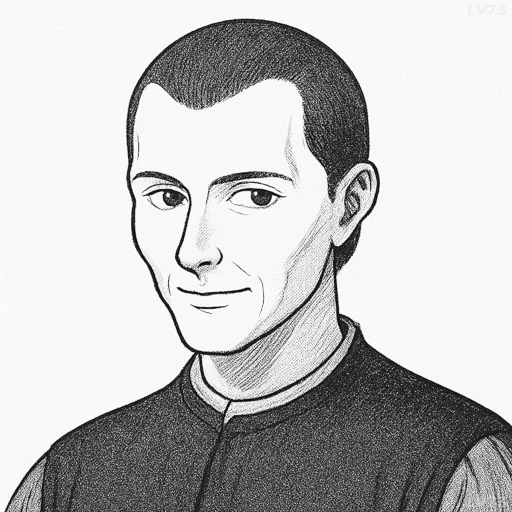“The fact is that a man who wants to act virtuously in every way necessarily comes to grief among so many who are not virtuous.”

- May 3, 1469 – June 21, 1527
- Born in the Republic of Florence (Italy)
- Political thinker and diplomat
table of contents
Quote
“The fact is that a man who wants to act virtuously in every way necessarily comes to grief among so many who are not virtuous.”
Explanation
In this quote, Niccolò Machiavelli reflects on the challenges faced by those who strive to uphold moral integrity in a world where others may not share the same values. He argues that individuals who attempt to be virtuous in all aspects of their lives often suffer because they are surrounded by others who are not equally bound by virtue. In a corrupt or self-interested society, the virtuous are at a disadvantage, as they may be exploited, undermined, or outmaneuvered by those who are more willing to act immorally or deceptively in order to achieve their goals. This reflects Machiavelli’s belief that virtue, while admirable, can be a liability in a competitive or cutthroat environment.
Machiavelli’s view was shaped by the political instability and betrayal he witnessed in Renaissance Italy, where city-states were constantly at war and political alliances were often temporary or opportunistic. In such a world, moral principles could easily be used against those who adhered to them, as opponents who were willing to abandon morality could outpace or manipulate them. For example, Francesco Sforza, a Milanese ruler, had to adopt a mix of force, cunning, and political pragmatism in order to secure and maintain power, often employing strategies that would be seen as immoral by more virtuous individuals. In contrast, someone who acted purely according to moral principles would be easily overpowered in such a ruthless environment.
In modern terms, this quote speaks to the difficulties of idealism in competitive fields like business, politics, or even international relations. In a world where others may be willing to bend the rules or act unethically to get ahead, those who attempt to stay strictly virtuous may find themselves at a disadvantage. For instance, in corporate settings, leaders who emphasize honesty and transparency may face challenges when competing against firms that use aggressive tactics or questionable practices to maximize profits. Similarly, politicians who try to maintain a clean reputation may be outmaneuvered by rivals who are willing to engage in manipulation or scandalous tactics to secure power. Machiavelli’s insight serves as a warning that in a world of moral ambiguity, those who act purely with virtue may often find themselves vulnerable to the self-interested or cynical actions of others.
Would you like to share your impressions or related stories about this quote in the comments section?
